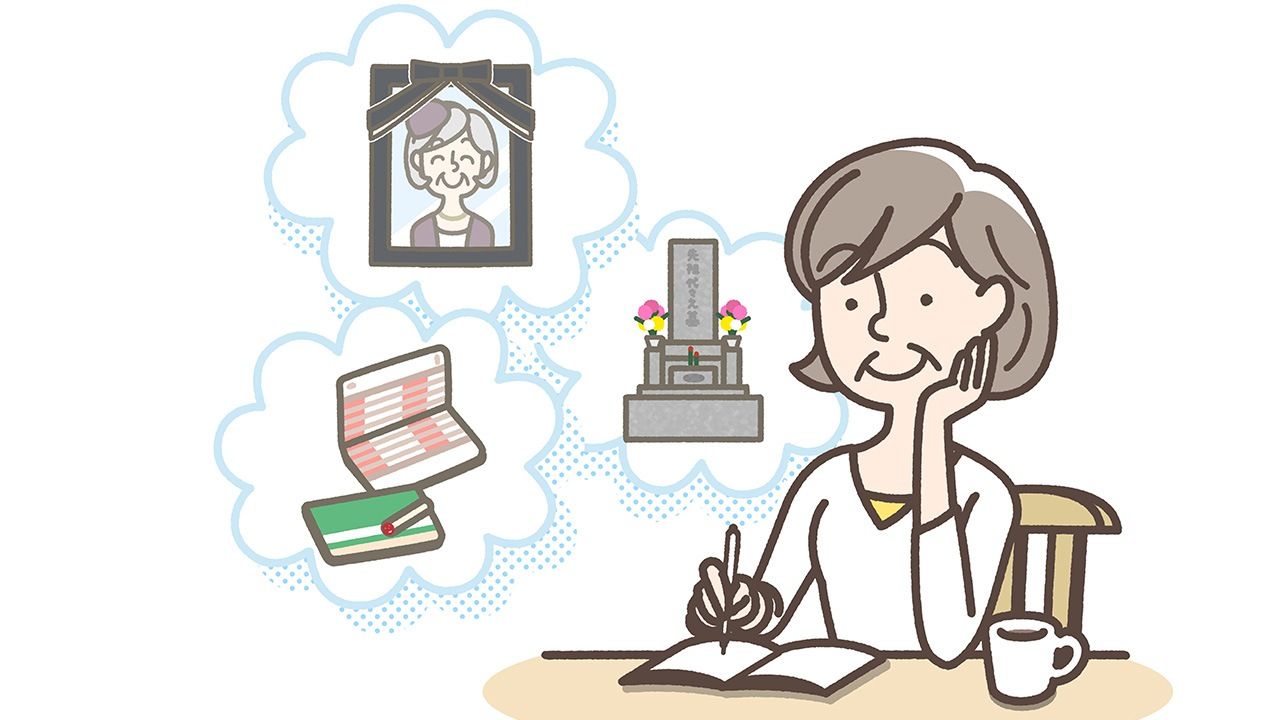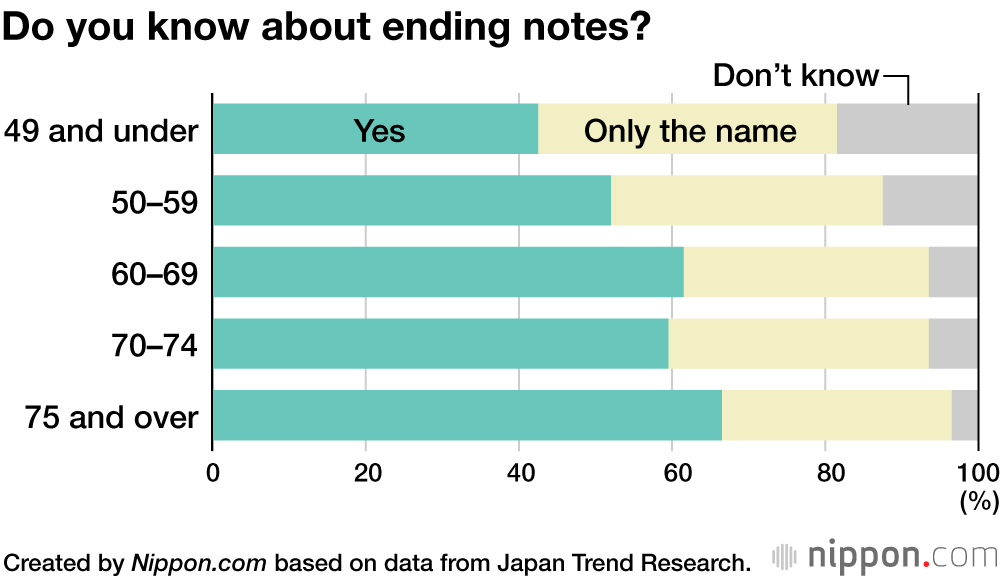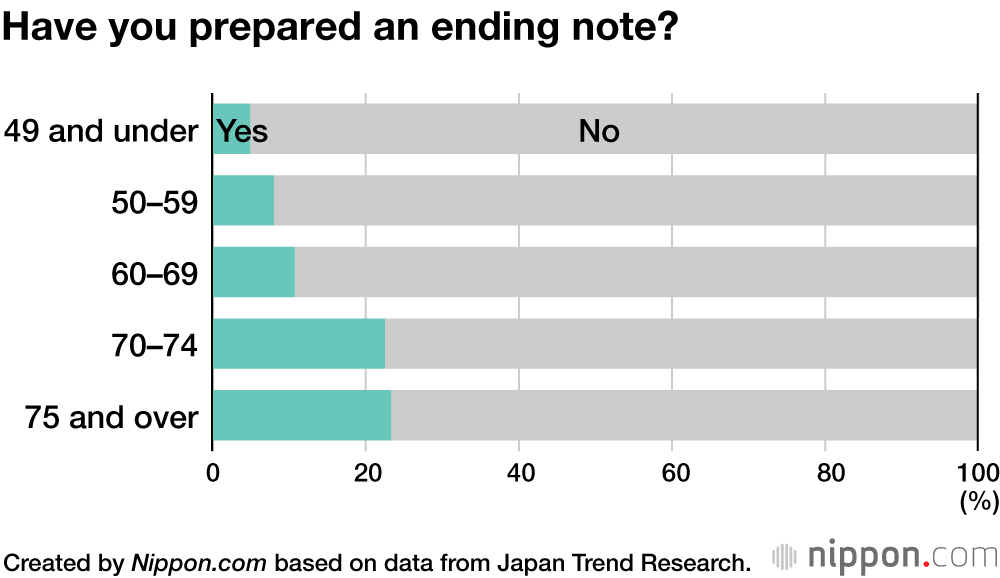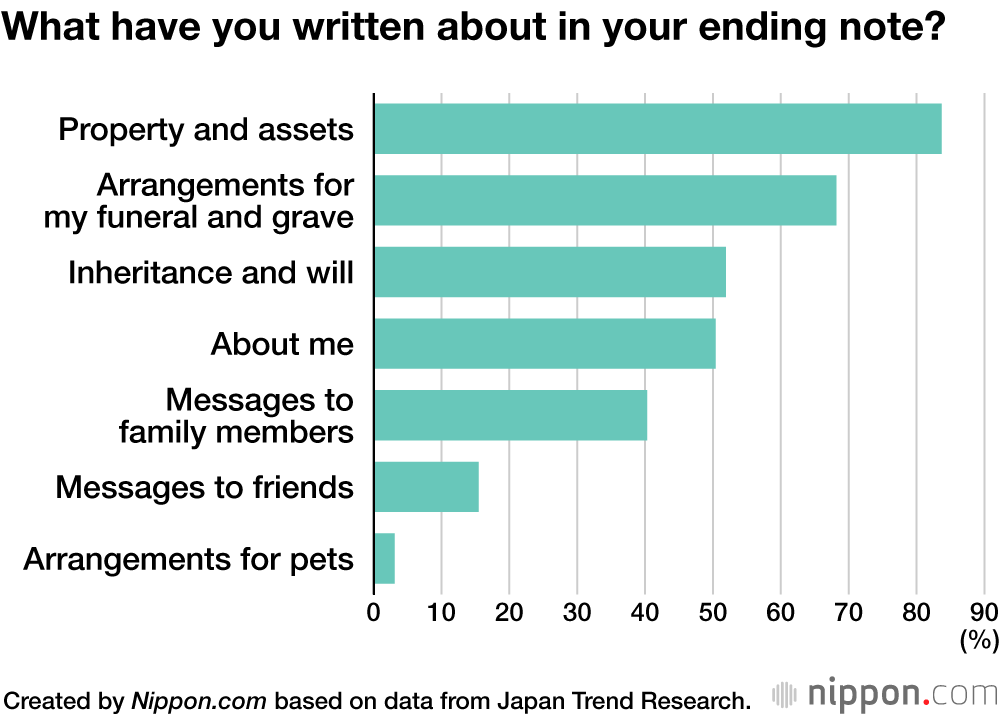
“Ending Notes”: Posthumous Messages to Share Information and Say Last Goodbyes
Society- English
- 日本語
- 简体字
- 繁體字
- Français
- Español
- العربية
- Русский
The Japanese term shūkatsu refers to end-of-life-preparations people make to reduce the amount of trouble their passing will cause to family members. One associated activity coming under the spotlight in Japan is the writing of “ending notes” to pass on information and personal thoughts, as well as express wishes for after one’s death.
A joint survey conducted by Japan Trend Research and Saihōkaku Family Funeral Hall Wagokoro, aimed at 1,000 people across Japan, revealed that over half of those aged 50 and over were aware of ending notes. Among those aged 75 and over, 66.5% knew about them.
However, when respondents were asked if they had actually prepared ending notes, the percentage was a lot lower, with 8.0% for people in their fifties, 10.7% for those in their sixties, 22.5% for those aged 70 to 74, and 23.3% for those who were 75 or over. The reasons people gave for having prepared them included “when my mother died, she had already made end-of-life preparations and it was really helpful” and “it’s to make sure that my remaining family members aren’t troubled with various matters after my death.”
At 83.7%, the most common content included in ending notes was regarding “property and assets,” followed by 68.2% covering “arrangements for my funeral and grave,” and 51.9% giving information about the “inheritance and will.”
(Translated from Japanese. Banner photo © Pixta.)


